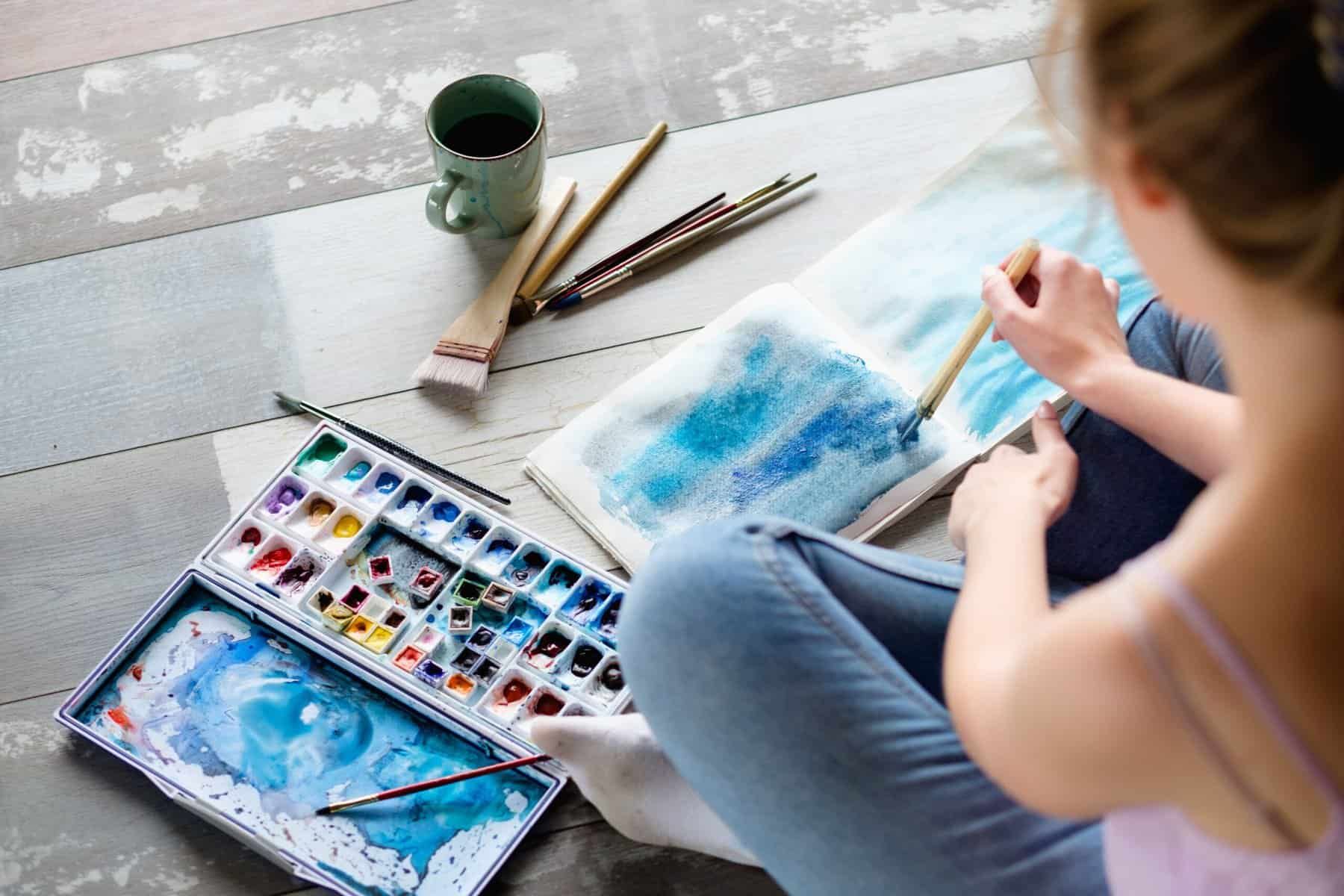How Do Art and Creative Therapies Work?
- Home
- Blog
- Addiction Treatment
- How Do Art and Creative Therapies Work?

Art and creative therapies in mental health and addiction recovery can be very beneficial to healing and progress in recovery. They can help with learning positive coping skills and having positive outlets for stress and anxiety. But what are art and creative therapies? How do they work? Knowing about these positive methods can help someone seek recovery and take part in these healing therapies.
What is Art Therapy for Mental Health?
Mental health conditions like depression and anxiety can be debilitating. It can make it extremely difficult to complete daily tasks that normally would be a walk in the park. Those who struggle with mental health often need a positive outlet to alleviate the symptoms that can occur. Art therapy for mental health can help those who are struggling to find that positive outlet.
Art therapy can refer to different things. It can include things like theater, dance, drawing, painting, crafting, and music. Art therapy allows for an artistic outlet for those struggling with mental health. These art and creative therapies give a positive outlet for people to express themselves and release stress and anxiety.
How Does Art Therapy Aid Mental Health and Addiction Recovery?
Creative expression provided by art and creative therapies can aid in addiction recovery and mental health improvement. Because these therapies can be non-verbal, it allows for actively expressing traumas, feelings, and thoughts that may be difficult to articulate. Therefore, this is very beneficial for those who have a hard time talking about the factors leading to and contributing to mental health and addictions.
Making art in an environment that is therapeutic helps people see their emotions, triggers, and underlying problems more clearly. Artistic and creative outlets help individuals with self-discovery, and self-esteem, and also help someone feel a sense of accomplishment. As with holistic therapies, art and creative therapies promote mindfulness and staying in the present. This can help to alleviate symptoms of depression and anxiety.
Using these forms of therapy can help someone struggling with addiction to have a healthy alternative to coping with stressors and triggers. Because art releases dopamine in the brain, the “feel good” sensors in the brain can be sated and the need for outside stimulation from drugs and alcohol dissipates. Creating art can also occupy time. Someone struggling with addiction can benefit from routine and having less free time, especially in early recovery.
Benefits of Art and Creative Therapies
Art and music therapies are known to be beneficial to those struggling with mental health. Most people feel a connection to music. Thereby, it can be used for entertainment, relaxation, and distraction. Using art and music therapy as a treatment approach for mental health and addiction can also help people to complete daily tasks and as motivation to reach the goals they have set.
These are very important parts of healing and recovery. Having healthy and attainable goals helps boost self-esteem and self-confidence, as well as nurtures a sense of accomplishment. Oftentimes, music and art can express pain and traumas that can be extremely hard for someone to verbalize. Using these forms of therapy to be able to effectively express oneself can make it easier to get negative feelings and emotions out.
Art Therapy Approaches
The three main approaches to art therapy can all benefit those who struggle with addiction and mental health. They include:
- Gestalt approach: This approach is used to allow for surface-level expression before digging in and trying to find a deeper meaning. An individual will be guided through using art as a tool for self-expression. This can help someone to express feelings and thoughts they may have a hard time speaking out loud.
- Active imagination approach: In this form of art therapy, an individual is to let their mind wander, and draw whatever comes to mind. Introspection and reflection can be beneficial when someone is trying to learn new and healthy ways of coping.
- Third-hand approach: This approach to art therapy allows the therapist to assist in the execution of the person’s vision. The goal is for the person’s idea to be dominant in the drawing or painting.
Overall, the goal of art and creative therapies is for a person to begin healing and find recovery from mental health and addiction. Therefore, using art therapy helps those who are struggling with mental health and addiction to identify the problem, learn new and positive coping skills, and maintain recovery. Moreover, emotional healing, self-reflection, and communication improvements can be a result of using art therapy to help those struggling to recover.
Art and Creative Therapies At Empowered Recovery
Struggling with mental health, addiction, or both can make life extremely difficult. Additionally, these conditions can make life very uncomfortable, and difficult to go about daily activities. Things like going to work or school can be a task that seems impossible.
So, if you or a loved one are struggling with mental health or addiction, Empowered Recovery can help. We offer art and creative therapies that can help individuals express themselves fully and learn new coping skills necessary for recovery.
Call us today to begin a journey of healing.
Program Links
Check Your Insurance Benefits
Empowered Recovery Center is dedicated to providing addiction treatment services to the greater Atlanta area including Acworth, Alpharetta, Canton, Cartersville, Kennesaw, Marietta, Powder Springs, Sandy Springs, and more.
Resources
Connect With Us
-
Empowered Recovery Center
3651 Canton Road,
Marietta, GA 30066
